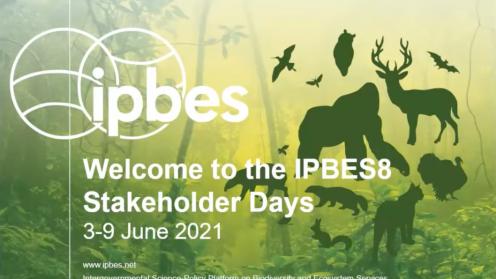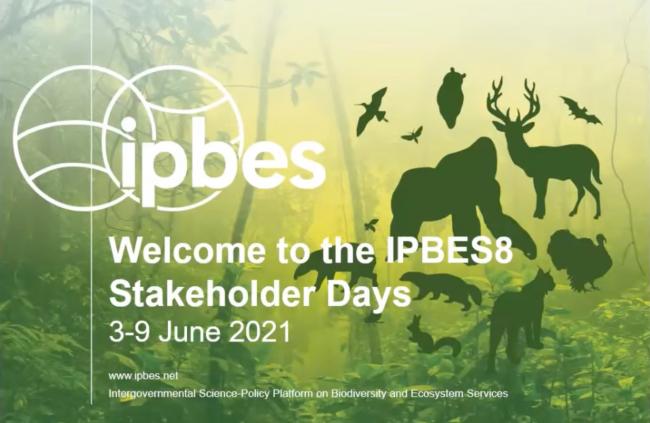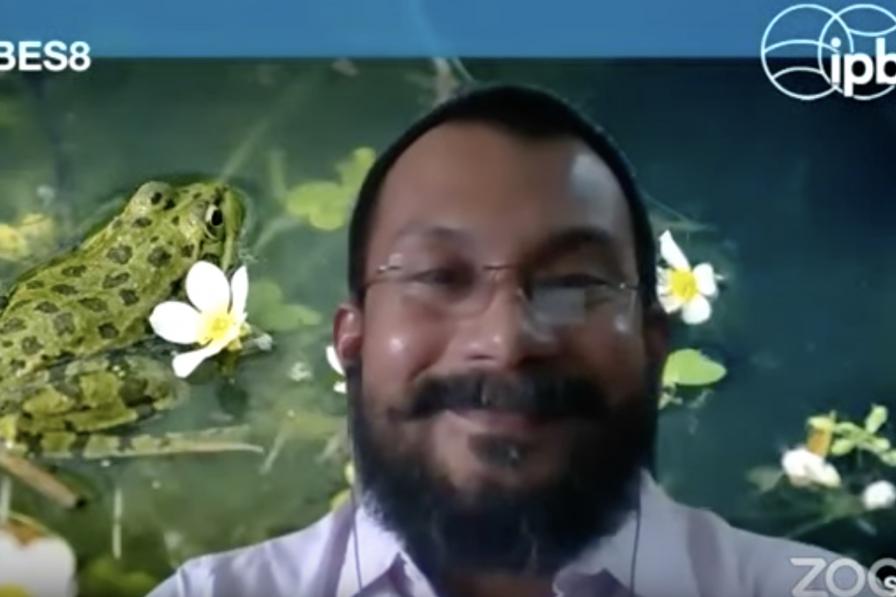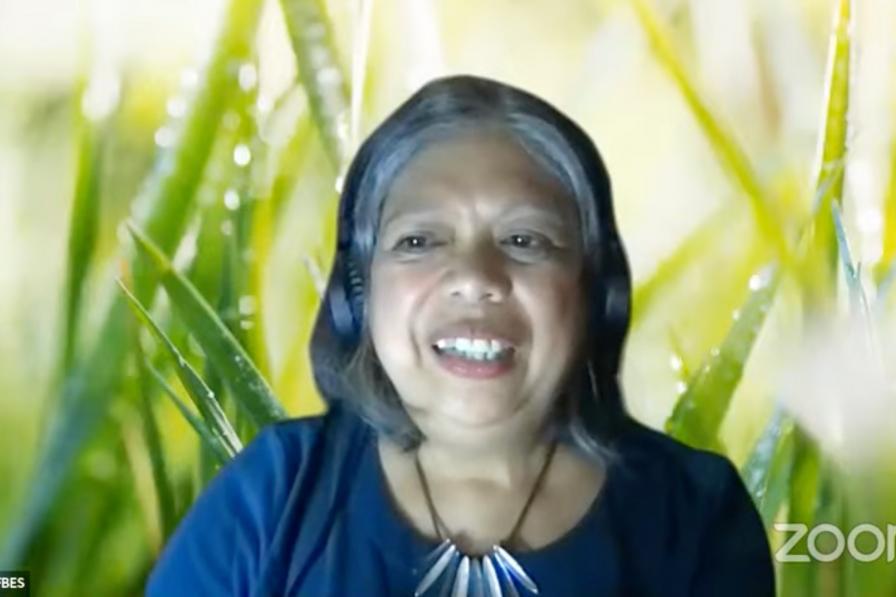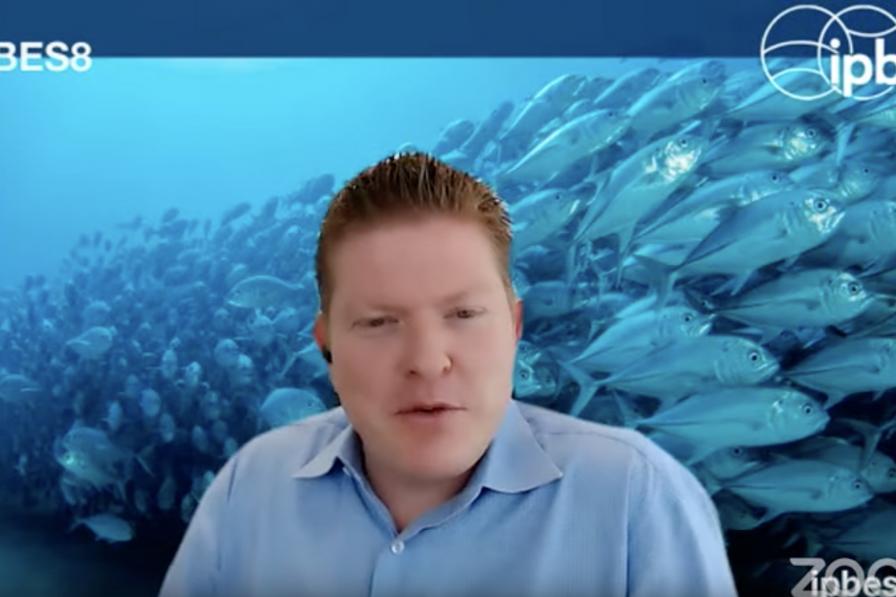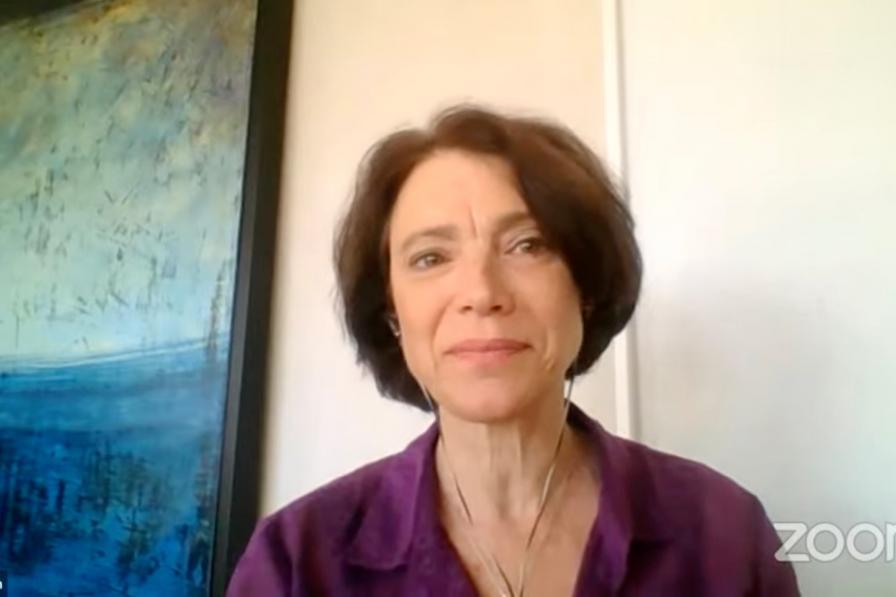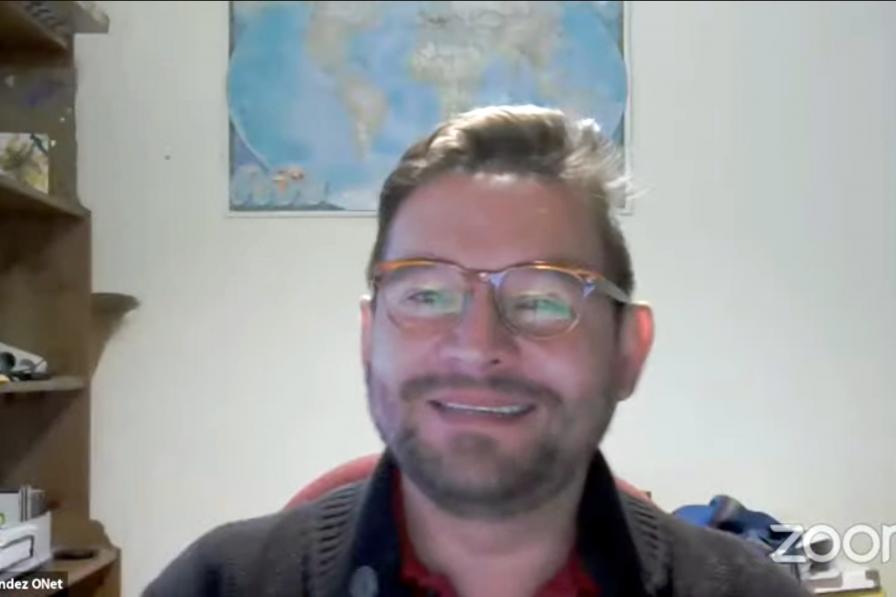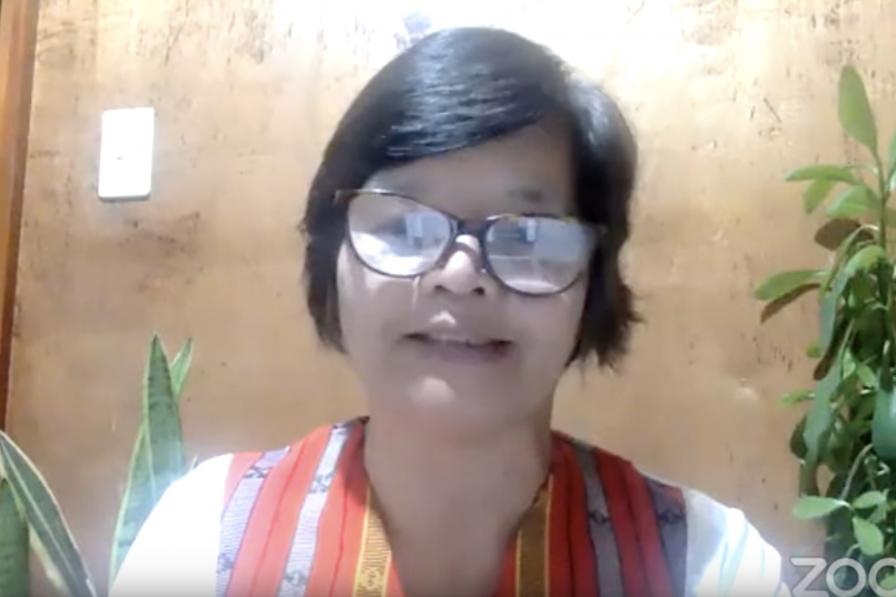As the Intergovernmental Platform on Biodiversity and Ecosystem Services (IPBES) prepared for the eighth meeting of its governing body, it took time to meet virtually with groups deeply concerned by damage to the planet’s biodiversity, ecosystems, and the benefits they provide humanity.
Moderators Claire Doole, Claire Doole Communications, and Wanja Dorothy Nyingi, Multidisciplinary Expert Panel (MEP) Member and National Museums of Kenya, opened the first day of the IPBES-8 Stakeholder Days.
Pranab Patar, Open-Ended Network of IPBES Stakeholders (ONet), underscored stakeholders as key to IPBES’ implementation. He applauded the Stakeholder Days as an opportunity to exchange ideas and knowledge on IPBES’ work and reflect on progress since IPBES-7.
Joji Cariño, International Indigenous Forum on Biodiversity and Ecosystem Services (IIFBES), spoke on how the networks have been key to disseminating the outcomes of the Global Assessment on Biodiversity and Ecosystem Services. She further called for: greater inclusion of Indigenous peoples and local communities (IPLCs) in environmental governance and stronger legal and policy support; and more efforts to fill the knowledge gaps in the comprehensive inclusion of Indigenous and local knowledge in the work of IPBES.
Anne Larigauderie, IPBES Executive Secretary, provided an update on IPBES activities, noting continued work on the impact tracking database. She stated three assessments are underway: sustainable use of wild species; values; and invasive alien species (IAS), further highlighting the two scoping reports on the nexus of biodiversity, water, food, and health, as well as the determinants of the transformative change assessment. Larigauderie noted key items to be addressed at IPBES-8, include the aforementioned scoping reports, the work of the five task forces, and updates on support on scenarios and models.
Responding to questions, Larigauderie said the Global Assessment has helped bring the importance of biodiversity and its far-reaching effects to the forefront of people's mind. She also noted a greater recognition of biodiversity’s importance by a variety of stakeholders, notably the private sector. She further stressed biodiversity, pollution, and climate change can be tackled together, taking into account unintended consequences.
Robert Spaull and Flore Lafaye de Micheaux, IPBES Secretariat, presented on communication and stakeholder engagement. Spaull noted the focus of IPBES communication since the last plenary has been on: promoting the uptake of the global assessment; launching the workshop report on links between biodiversity and pandemics; and preparing to launch the workshop report on biodiversity and climate change. He highlighted a significant increase in engagement both with traditional media and social media platforms. Lafaye de Micheaux presented the process and results of the 2020 IPBES stakeholder survey, including highlighting obstacles for further engagement with IPBES, such as competing work requirements.
Simone Schiele, IPBES Secretariat, presented an overview of the IPBES work programme, outlining the objectives of: assessing knowledge; building capacity; strengthening knowledge foundations; supporting policy; communicating and engaging; and improving the Platform’s effectiveness.
On assessing knowledge, she cited the various assessments, which are all at different points of completion. On building capacity, she highlighted establishing a fellowship programme, hosting webinars for stakeholders, and supporting the uptake of the approved assessments. On strengthening knowledge foundations, she highlighted advanced work on the IPBES data management policy. On strengthening knowledge foundations, she underscored Indigenous and local knowledge and their incorporation in IPBES’ work. On supporting policy, activities underway included a survey on the use of IPBES assessments in policymaking and workshops to engage the broader scientific modelling community.
Karen O'Brien, University of Oslo, on behalf of the group of experts that assisted the MEP with producing a scoping document for a future IPBES assessment on transformative change, stressed the required transformative change to safeguard biodiversity is not only an environmental issue, but also a developmental and social challenge that needs to be addressed. She emphasized it is not too late to address the alarming decline in ecosystem services, but urgent, concerted efforts are required.
Former IPBES Chair Bob Watson, University of East Anglia, on behalf of the group of experts that assisted the MEP with the scoping report on the nexus assessment, noted the basic approach is to analyze how biodiversity affects food, water, and human health, and how water and food production use and affect biodiversity, all in the context of climate change. He highlighted the need to transform our economic and financial systems, reducing and eliminating perverse subsidies, and focusing on win-win technologies and practices. He further emphasized the need to address potential trade-offs, noting there is no dichotomy between environmental sustainability and sustainable economic growth.
Miguel Fernández, ONet and Florence Daguitan, IIFBES, focused on the organization of stakeholders’ work related to their opening statement at IPBES-8. Fernandez and Daguitan described a six-stage participatory process, which allows the suggestion, prioritization, and incorporation of ideas that will form the stakeholders’ opening statement. Final deliberations on the statement’s content will take place during the Stakeholder Days’ closing plenary on Wednesday, 9 June.
IPBES Chair Ana María Hernández Salgar (Colombia) closed the session, highlighting Stakeholder Days as an open space for discussion to strengthen IPBES’ work. She emphasized that decision makers can use best available information as a tool for policies promoting a sustainable future for all, thanking participants for their commitment.
The IPBES-8 Stakeholder Days opening plenary was highly interactive and featured robust discussion with panelists responding to questions from participants both seeking to clarify how to continue improving their engagement with IPBES, as well as discussing substantive issues, such as human-animal conflict.
To receive continuing coverage of this event delivered to your inbox, subscribe to the ENB Update newsletter.
